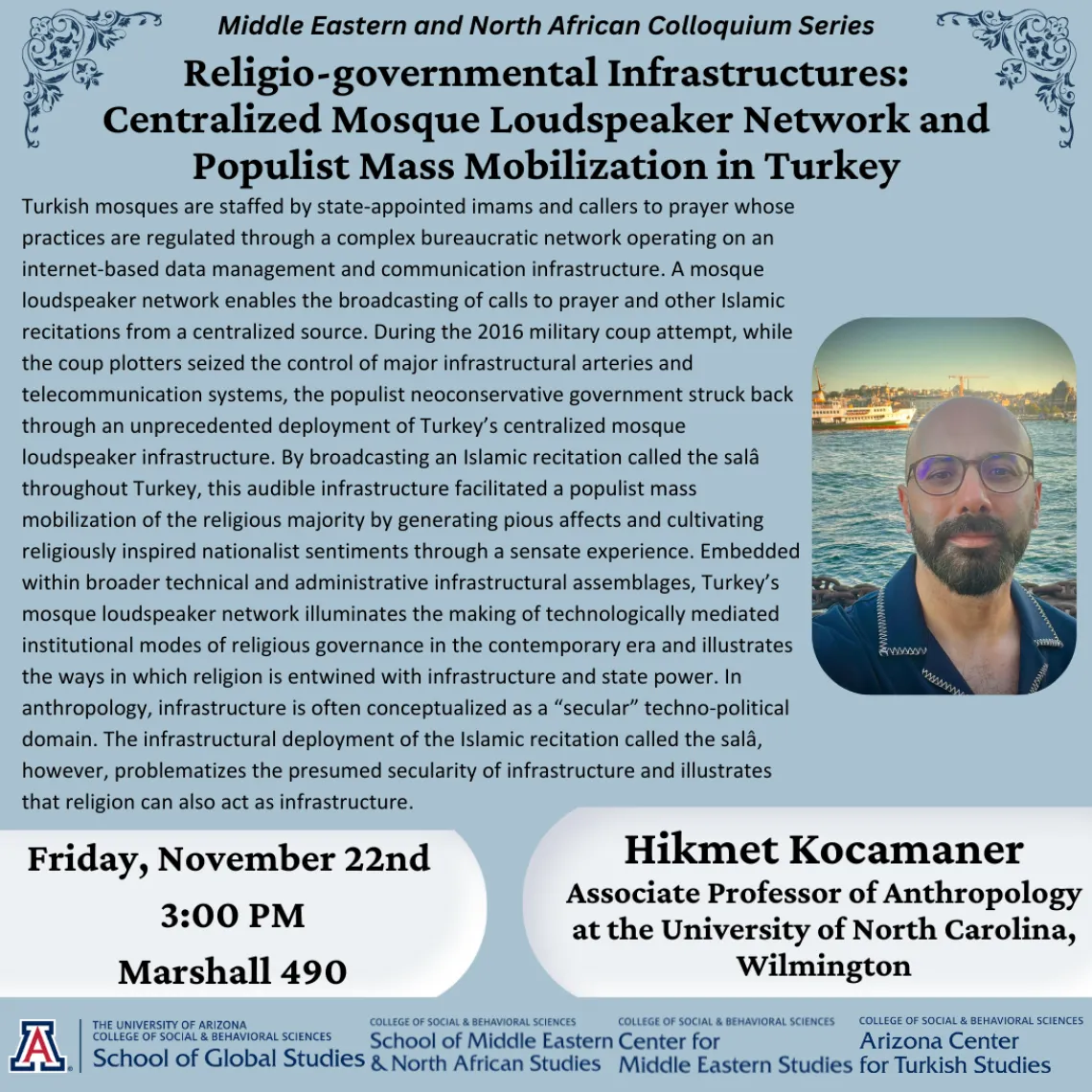Religio-governmental Infrastructures: Centralized Mosque Loudspeaker Network and Populist Mass Mobilization in Turkey

When
Where
Hikmet Kocamaner is an Associate Professor of Anthropology at the University of North Carolina Wilmington. After receiving a dual PhD degree in Anthropology and MENAS from the University of Arizona, he held postdoctoral and teaching positions at Brandeis, Harvard, and Boston University. His articles have been published in American Ethnologist, Anthropological Quarterly, MERIP, Oxford Handbook of Religion, Birikim, and American Anthropologist (forthcoming). Funded by an SSRC Dissertation Development Fellowship and a Wenner-Gren Dissertation Fieldwork Grant, Dr. Kocamaner’s first research explored the involvement of Islamic organizations in the politics of gender and the family. His second research, funded by a Wenner-Gren Post-PhD Research Grant, has investigated the assemblage of media and communication technologies and bureaucratic apparatuses constituting Turkey’s “religious infrastructures” that are utilized for regulating Sunni-Muslim religious affairs as well as integrating Islam into governance.
Religio-governmental Infrastructures: Centralized Mosque Loudspeaker Network and Populist Mass Mobilization in Turkey
Turkish mosques are staffed by state-appointed imams and callers to prayer whose practices are regulated through a complex bureaucratic network operating on an internet-based data management and communication infrastructure. A mosque loudspeaker network enables the broadcasting of calls to prayer and other Islamic recitations from a centralized source. During the 2016 military coup attempt, while the coup plotters seized the control of major infrastructural arteries and telecommunication systems, the populist neoconservative government struck back through an unprecedented deployment of Turkey’s centralized mosque loudspeaker infrastructure. By broadcasting an Islamic recitation called the salâ throughout Turkey, this audible infrastructure facilitated a populist mass mobilization of the religious majority by generating pious affects and cultivating religiously inspired nationalist sentiments through a sensate experience. Embedded within broader technical and administrative infrastructural assemblages, Turkey’s mosque loudspeaker network illuminates the making of technologically mediated institutional modes of religious governance in the contemporary era and illustrates the ways in which religion is entwined with infrastructure and state power. In anthropology, infrastructure is often conceptualized as a “secular” techno-political domain. The infrastructural deployment of the Islamic recitation called the salâ, however, problematizes the presumed secularity of infrastructure and illustrates that religion can also act as infrastructure.
This event will no longer be held in a hybrid format, and will only be available in person.

